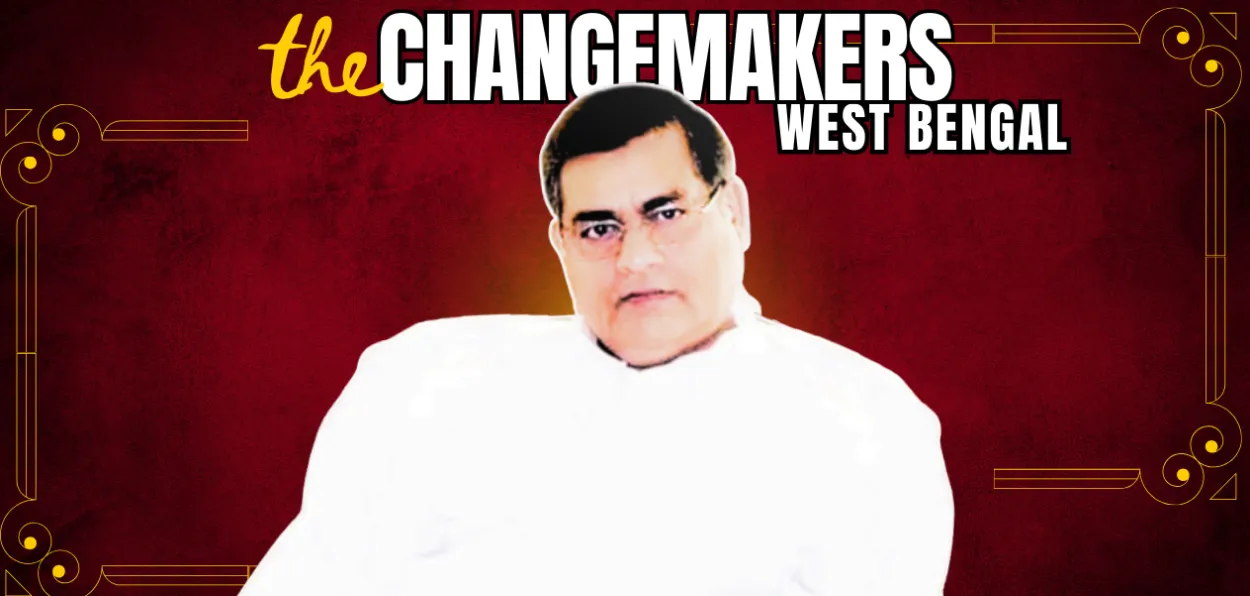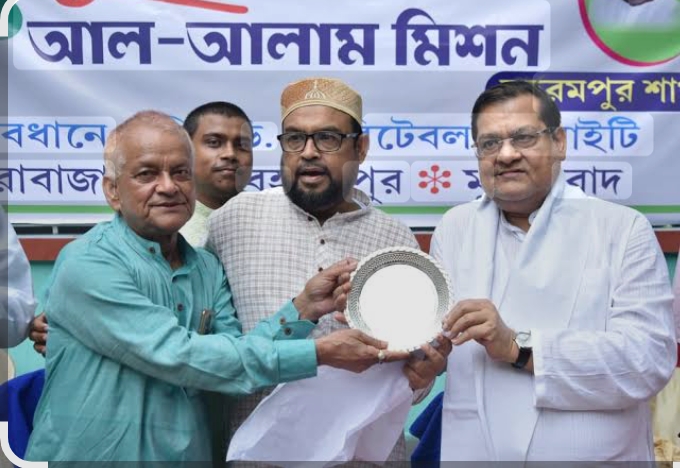
Mostaque Hossain has brought a new dawn to the forgotten Chandra village of West Bengal, illuminating it with the light of progress.
Through his vision, industrial development, and promotion of education, this once–obscure hamlet has found recognition far beyond its borders.
Nestled in Murshidabad district along the India–Bangladesh frontier, Chandra had long remained invisible to the wider world.
It is only because of Hossain’s generosity and farsightedness that the village now holds a distinct place on India’s map. People often ask: How did this man rise to such prominence? What forces shaped his childhood and family legacy?
.jpeg) Mostaque Hossain at a public function
Mostaque Hossain at a public function
Aurangabad, the broader region surrounding Chandra, has always lived under the shadow of recurring natural calamities. Positioned between the east-flowing Padma and the west-flowing Ganga, the land is battered year after year by floods and erosion.
In the aftermath of Partition, the area endured a peculiar crisis: countless villagers found their fields across the border in Bangladesh, while their homesteads remained in India.
It was in this landscape of hardship and dislocation that Mostaque Hossain was born. Today, a renowned industrialist of West Bengal, he descends from a family whose lineage stretches back seven generations, marked by prosperity and respect.
Few could have imagined that this boy from a forgotten hamlet would emerge as a beacon of hope for Bengal’s marginalized Muslims.
.jpeg) Mostaque Hossain at a public function
Mostaque Hossain at a public function
Among the state’s successful industrialists, Hossain’s name stands apart—not just for his business achievements but for his humanitarian commitment.
To many, he represents a new dawn, particularly for the Muslim community. A man of faith, he has devoted himself to society, with education at the heart of his mission. But what drives such a successful entrepreneur to dedicate so much to the cause of schooling?
Why does he pour resources into mission-run schools mushrooming across villages and districts of Bengal?
In a conversation with Awaz–The Voice, Hossain explained: “The continuous cycle of social deprivation faced by unemployed youth in West Bengal has always disturbed me deeply. I have felt their despair, their daily suffering, and the uncertainty of their lives.”
He admits that no individual can single-handedly create jobs for thousands of young people. But he refuses to see poverty as the only culprit: “I believe poverty alone is not the root cause of backwardness. It may be a symptom, but the deeper issue is the inherited disinterest in education. This apathy, passed down through generations, is the chief reason communities remain behind. The absence of courage and determination is another.”
 Mostaque Hossain at a public function
Mostaque Hossain at a public function
For him, the network of residential schools nurtured through community initiatives reflects this vision: “These schools are not just about teaching. They represent our dream, our collective movement—meant to spread knowledge, build moral character, and foster a spirit of service. Islam laid down a policy of universal education centuries ago, and it is our duty to carry it forward.”
To Hossain, faith provides a moral compass that obliges people to stand beside their neighbors, uplift the poor, and nurture both body and mind. With this spirit, he and his supporters have planted the seeds of nearly fifty residential educational institutions across Bengal.
ALSO READ: Matiar Rahman's artificial leaf is groundbreaking invention
“Our success is not complete yet,” he reflects. “It is still partial. But with faith, determination, and community effort, we can make the dream of an enlightened society a reality.”
